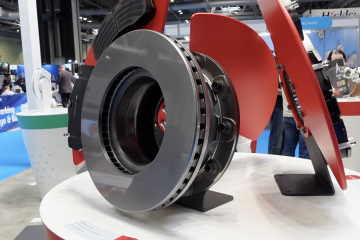New research shows drivers have serious concerns over potential plans to change the MOT frequency to every two years, backing the aftermarket in its efforts to protect the annual test.
A survey conducted by the RAC shows that 55% of the 1,435 respondents felt changing the MOT to every two years was a bad idea. Just 22% said they thought it was a good idea while a similar proportion (23%) were unsure.
Proposals to move the MOT to every two years came as part of plans to help the public through the cost-of-living crisis. This is not the first time the MOT has come under threat, with previous plans to change the frequency, including a recent move to switch to a 4-1-1 system, battled valiantly by aftermarket organisations.
The government has yet to confirm whether the latest plans will go to the consultation stage. However, since the idea was proposed, the cabinet has undergone major changes, headed by new Prime Minister Liz Truss, who seems to favour tax cuts above other measures.
Unsafe vehicles with two-yearly MOT
Respondents to the RAC survey overwhelmingly stated that a two-yearly MOT would be a bad idea due to the increase in unsafe vehicles on roads, echoing the complaints of the aftermarket. A total of 98% highlighted this issue, while 20% thought it would lead to an increase in the number of collisions on the road.
Almost two-thirds (61%) believe it would result in more vehicles breaking down.
Even though the government’s proposal is designed to ease financial pressures in the cost-of-living crisis, drivers are also not convinced about the possible money-saving benefits.
More than half (58%) say the changes could end up costing drivers more in the long run due to problems or defects going undetected and becoming more costly to repair, while 44% believe it might cause garages to put prices up for other repairs to compensate for lost earnings from doing less MOT work.
With the MOT costing a maximum of £54.80 every year, the initial saving is not one that would solve the cost-of-living crisis, nor would it offer much help against rising energy bills.
Reliability and cost-saving
Among the fifth of drivers who believe the changes would be a good idea, 74% say modern cars are more reliable and do not need annual checks, while 54% believed it will save them money.
A confident 41% told the RAC that they check their car for basic roadworthiness and don’t need to pay for someone to do it officially on an annual basis – seemingly not understanding the complexities of the MOT.
Having been in place across the UK since 1960, the scope of the MOT has been expanded over the years to include additional checks, such as vehicle emissions which were added to the list of items required to be scrutinised in 2018.
“Many drivers look at the MOT as an important tool to see if their vehicle is in a safe and roadworthy condition,” stated Nicholas Lyes, RAC Head of Roads Policy. “It makes them feel safer when driving and carrying family and friends knowing that, at least officially, their vehicle has been passed as safe to use on the roads. It also gives drivers peace of mind from an overall road safety point of view to know that every other vehicle on the road has undergone the same checks.”
“The idea that changing the MOT to every two years will save drivers money in the middle of a cost-of-living crisis is met with huge scepticism as our research shows many have rightly identified that it may end up costing them more in the long-term if faults go undetected and as a result get worse or cause other defects.
“But cost is secondary to road safety. We already know that many vehicles fail their MOT because of illegal tyre tread, so if this figure were to get significantly bigger more lives would be put at risk from vehicles losing grip on the road and not stopping quickly enough when brakes are applied. And we know from our breakdown statistics that tyres in poor condition are far more likely to blow out or get punctured.
“There is a real danger that if the government proceeds with these proposals that we could see an increase in the number of collisions and more injuries and deaths due to more unroadworthy vehicles using our roads, and an overall reduction in road safety. We’ve written to the new Secretary of State for Transport and urged her to consign this idea to the bin and look at other ways to help cash-strapped drivers reduce their motoring costs.”



